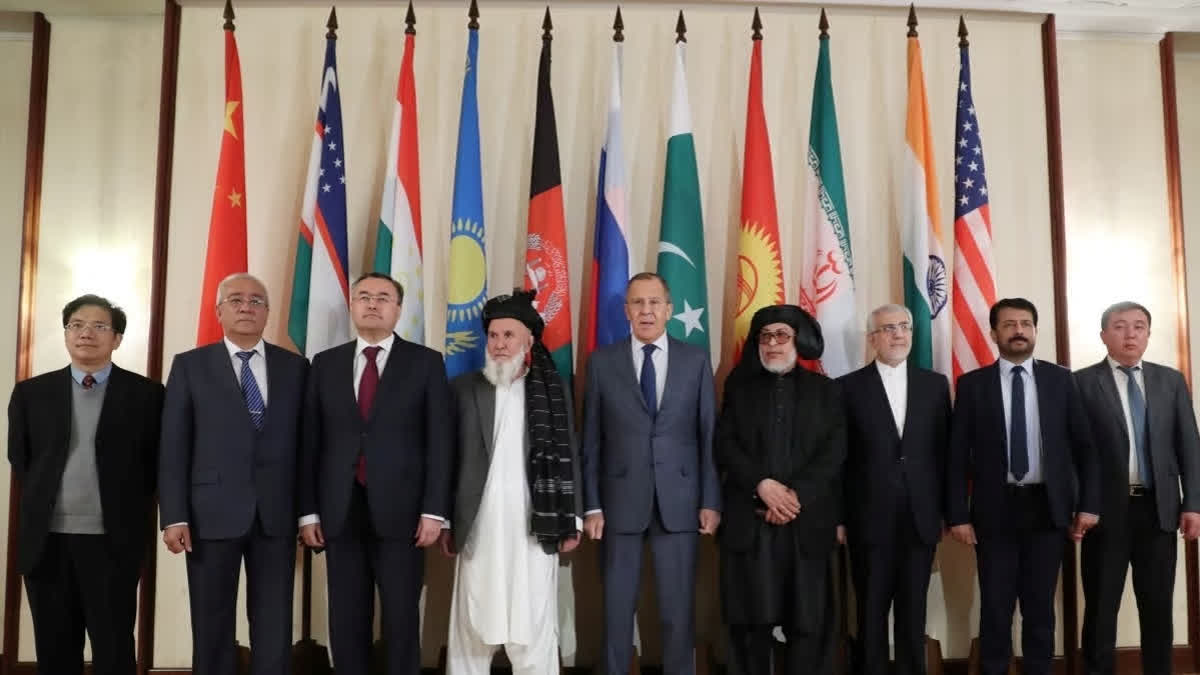New Delhi: Even as China became the first country earlier this month to appoint an ambassador to Afghanistan under the new Taliban regime, speculations are rife about what position India will take in this year’s Moscow Format Meeting to be held in the Russian city of Kazan on September 29.
The annual Moscow Format Meeting was started in 2017 as a regional platform for consultations between special envoys of Russia, Afghanistan, India, Iran, China, and Pakistan to promote peace, and stability and facilitate national reconciliation in war-ravaged Afghanistan. Later, five Central Asian nations – Kazakhstan, Kyrgyzstan, Tajikistan, Turkmenistan and Uzbekistan – joined the consultations.
Reports suggest that the Taliban have reached out to India seeking New Delhi’s support for economic stability and international recognition of the regime in the South Asian nation. Suhail Shaheen, head of the Taliban’s political office, has been cited as saying that his country seeks to have traditional positive ties with India.
Following the Taliban’s return to power in August 2021, the Afghanistan government budget lost 80 percent of its funding and food insecurity became widespread. The Taliban returned Afghanistan to many policies implemented under its previous rule, including banning women from holding almost any job, requiring women to wear head-to-toe coverings such as the burkha, blocking women from traveling without male guardians, and banning all education for girls.
All this time, India has refused to recognize the Taliban’s “Islamic Emirate” and has emphasized the importance of respecting human rights and protecting minority communities. India has maintained a “technical team” in its embassy in Kabul to assist with humanitarian efforts but has not allowed the Taliban to appoint diplomatic staff in the embassy in New Delhi.
The Afghan embassy in New Delhi has been facing financial challenges since the fall of the Ashraf Ghani government. There have been concerns about the whereabouts of the Afghan Ambassador to India Farid Mamundzay, and there appear to be internal issues within the Afghan mission in New Delhi.
The meeting in Kazan on Friday assumes significance given that China has gone ahead to become the first country to appoint an ambassador in Kabul under the current Taliban regime. On September 13, Afghanistan’s acting Prime Minister Mohammad Hasan Akhund and Foreign Minister Amir Khan Muttaqi, welcomed China’s newly appointed Ambassador Zhao Sheng at the presidential palace in Kabul.
Subsequently, the Chinese embassy in Afghanistan urged the international community to continue engaging in dialogue with the Taliban and, also encouraged the Taliban to adopt moderate policies and establish an inclusive government.
